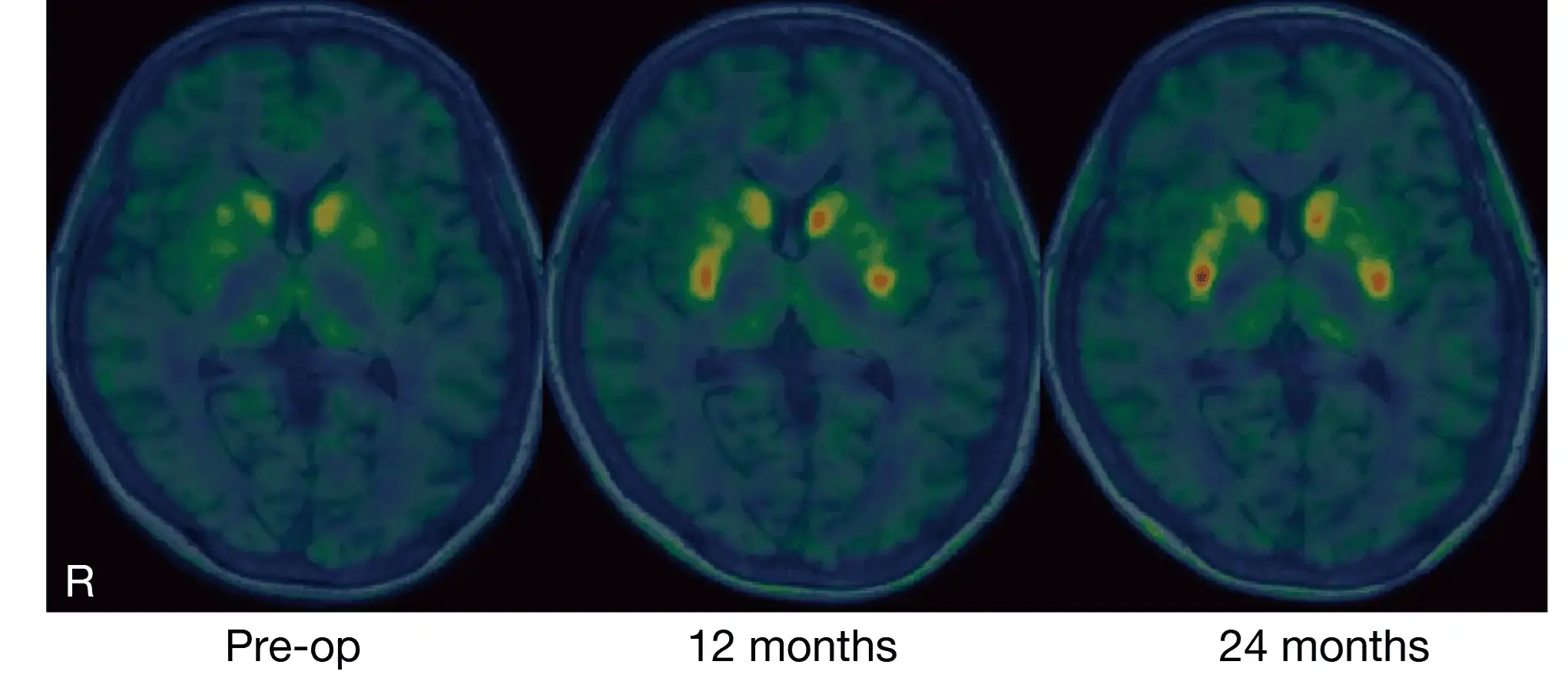
Study finds three glasses of this common drink a day could prevent dementia
As the global population ages, the incidence of Alzheimer’s and other forms of dementia is on the rise. According to the National Institutes of Health (NIH), approximately 6.7 million people in the United States are living with Alzheimer’s dementia, a number expected to soar to 13.8 million by 2060. As researchers and healthcare professionals continue to search for ways to prevent or delay the onset of cognitive decline, one surprising solution has emerged: Green tea.
A recent study out of Japan has shed new light on the potential protective benefits of green tea against dementia, specifically its ability to reduce the risk of cognitive decline by lowering the occurrence of cerebral white matter lesions, a key marker for dementia. With increasing evidence pointing to the positive impact of this humble beverage, green tea may soon become a critical component in our fight against dementia and cognitive deterioration.
Understanding the Link Between Green Tea and Cognitive Health
The idea that what we consume has a profound impact on our brain health is not new. Research has long suggested that maintaining a healthy diet, staying physically active, engaging socially, and keeping the mind stimulated can lower the risk of cognitive decline and dementia. However, a recent study conducted in Japan has uncovered a potential new benefit of a commonly consumed beverage-green tea.
In the study, researchers analyzed the habits of almost 9,000 adults, collecting information on their coffee and tea consumption and using brain scans to assess the presence of cerebral white matter lesions. These lesions are a common indicator of cognitive decline and are often seen in individuals with dementia. The study found that those who regularly consumed green tea showed fewer white matter lesions, suggesting a possible protective effect on the brain.
A new study out of Japan has found drinking 3 cups of green tea a day can lower the risk of dementia.
Interestingly, the same benefits were not observed in participants who consumed coffee. While coffee has been widely studied for its health benefits, including improved cognitive function and reduced risk of certain diseases, this particular study did not find a link between coffee intake and a reduction in the risk of cognitive decline.
“The findings suggest that drinking green tea, especially three or more glasses a day, may help prevent dementia,” stated the lead researcher of the study. The results align with previous studies that have shown green tea's potential to protect against cognitive decline, making it a promising candidate in the fight against dementia.
The Science Behind Green Tea's Protective Effects
Green tea is rich in antioxidants, particularly catechins like epigallocatechin gallate (EGCG), which have anti-inflammatory and cell-protective properties. These antioxidants are believed to play a crucial role in reducing the risk of several chronic diseases, including cancer and stroke. By reducing inflammation in the body and protecting cells from oxidative damage, green tea may help maintain brain health and reduce the development of conditions like dementia.
Studies have shown that EGCG and other catechins found in green tea can protect brain cells from damage, potentially slowing the progression of neurodegenerative diseases. The anti-inflammatory properties of green tea also help maintain healthy blood vessels in the brain, which is critical for cognitive function. This makes green tea not only a powerful beverage for overall health but also a potent protector of brain health as we age.
The study found that “drinking green tea, especially three or more glasses per day, may help prevent dementia.” rocketclips – stock.adobe.com
In addition to its effects on brain health, green tea has been shown to improve heart health by reducing cholesterol levels and lowering blood pressure. These cardiovascular benefits may further contribute to reducing the risk of dementia, as heart health and brain health are closely connected. By preventing heart disease and improving circulation, green tea helps maintain the brain’s ability to function optimally.
Research Supporting the Health Benefits of Green Tea
Green tea’s protective effect on cognitive health has been the subject of several studies over the years, with encouraging results. A 2022 meta-analysis, which combined data from multiple studies, found that the risk of developing dementia decreased by 6% for each cup of green tea consumed. This suggests that even modest consumption of green tea could have a significant impact on long-term cognitive health.
Another recent study reinforced these findings, showing that drinking two to three cups of green tea per day significantly reduced the risk of cognitive decline. Interestingly, the benefits seemed to plateau at three cups, as drinking four or more cups did not show any additional protective effects. This aligns with the principle of moderation, which is key to obtaining the health benefits of green tea without experiencing any potential negative side effects, such as sleep disturbances or anxiety.
These findings contribute to a growing body of evidence suggesting that green tea could play a key role in preventing dementia and cognitive decline, particularly when consumed regularly over a long period.
A Unique Insight From Ikaria, Greece: The Connection Between Green Tea and Longevity
The potential connection between green tea and longevity is further supported by observations made on the Greek island of Ikaria, known for its high population of centenarians-people who live to be 100 years or older. Researchers have long been fascinated by the lifestyle and diet of Ikarians, who have significantly lower rates of dementia and age-related diseases compared to other populations. One of the key components of their diet is green tea.
Green tea is a staple of the Ikarian diet, and it is often consumed multiple times a day. This practice, along with other healthy lifestyle habits such as regular physical activity and a plant-based diet, is believed to contribute to the island's high life expectancy and low rates of dementia. While there are many factors at play, green tea seems to be an important part of the puzzle for healthy aging.
Green Tea’s Other Health Benefits
Aside from its cognitive benefits, green tea is known for its wide range of other health advantages. It has been shown to have anti-inflammatory effects, improve heart health, and even help with weight management. As previously mentioned, green tea can lower blood pressure and reduce cholesterol levels, both of which contribute to better cardiovascular health. These benefits are particularly important since heart disease and stroke are major risk factors for cognitive decline and dementia.
Green tea also contains compounds that help regulate blood sugar levels, which can reduce the risk of developing Type 2 diabetes-a condition that has been linked to an increased risk of dementia. By improving insulin sensitivity and lowering blood sugar levels, green tea can help prevent the onset of diabetes, which is a key factor in the development of cognitive impairment and Alzheimer’s disease.
How Much Green Tea Should You Drink?
So, how much green tea should you be drinking to reap the cognitive benefits? While studies suggest that two to three cups a day are ideal for preventing cognitive decline, it’s important to remember that moderation is key. Drinking more than four cups per day may not provide any additional benefits and could lead to side effects such as jitteriness or difficulty sleeping due to the caffeine content in green tea.
For most people, consuming two to three cups of green tea a day is an excellent way to boost overall health, protect brain function, and reduce the risk of dementia. This amount provides a healthy dose of antioxidants and other beneficial compounds without going overboard.
Conclusion: The Protective Power of Green Tea
The growing body of research highlighting the health benefits of green tea suggests that this humble beverage can play a significant role in protecting cognitive health and preventing dementia. Whether consumed for its antioxidants, its ability to improve cardiovascular health, or its potential to reduce the risk of cognitive decline, green tea offers a simple and accessible way to support healthy aging.
By drinking green tea regularly, especially in moderate amounts, individuals can enjoy a variety of health benefits, including better brain function, improved heart health, and a lower risk of chronic diseases. As research continues to unfold, it’s clear that green tea is more than just a drink-it’s a powerful ally in the fight against aging and cognitive decline.
If you’re looking for a simple and natural way to enhance your health, consider incorporating green tea into your daily routine. With its proven benefits for both mind and body, green tea may be the key to maintaining cognitive function and aging more healthily.
News in the same category


36-Year-Old Teacher Passed Away From Diabetes Doctors Say Was Triggered By Everyday Foods
Diabetes is a dangerous condition with numerous complications, and diet is a key factor.

Experts issue urgent warning about terrifying hidden symptom from taking Mounjaro and Ozempic
Experts have issued an urgent warning about a symptom that can come to light from taking drugs such as Mounjaro and Ozempic.

The Benefits of Epsom Salt Foot Soak: A Natural Remedy for Foot Pain and Health
Discover the health benefits of Epsom salt foot soaks, including pain relief, exfoliation, fungal infection treatment, and more. Learn how to safely use Epsom salt for foot health.

What Causes Blue Veins? Understanding the Reasons and When to Seek Help
Blue or green veins are common, but when should you worry? Learn the possible causes of visible veins, from genetics to lifestyle factors, and when it may indicate a medical condition.

7 Early Warning Signs of Diabetes You Shouldn’t Ignore: Act Now for Better Health
Learn about 7 early warning signs of diabetes that could be easily overlooked. Early detection can help manage diabetes, prevent complications, and improve quality of life. Read on for expert insights.

Genetic Link Between Endometriosis and Autoimmune Diseases Revealed in New Study
A new study has identified a shared genetic link between endometriosis and autoimmune conditions. Women with endometriosis are at a higher risk for diseases like rheumatoid arthritis, multiple sclerosis, and psoriasis.

People Warned to See a Doctor After Sharing Photo of Concerning Dark Line on Finger
A Reddit user received warnings to see a doctor immediately after posting an image of a dark line on their finger. Learn about melanonychia and why nail discoloration can be a serious health concern.

Breakthrough in Parkinson’s Treatment: Japanese Scientists Successfully Implant Lab-Grown Brain Cells
Japanese researchers have made a groundbreaking discovery in Parkinson’s treatment using lab-grown brain cells. Early results from the clinical trial show promising improvements in movement and dopamine production.

4 Simple Steps to Cool Your Home Faster and Save on Electricity Before Turning on the Air Conditioner

3-Blade vs. 5-Blade Fans: Which Cools Better? The Truth Behind Common Misconceptions

The Alarming Rise of Bowel C@ncer in Young Adults: Is Your Diet to Blame

United Airlines Passenger Punches Gate Agent, Kn0cking Them Out

Should You Close or Leave the Toilet Lid Open After Use? 90% of People Get It Wrong — Here's Why Your Bathroom Always Smells

4 Everyday Foods That Fuel C@ncer Cells

Fatty Liver Disease: A Silent Pathway to Liver C@ncer

The Hidden Purpose of the Pocket in Women's Underwear: More Than Just a Design Feature
In actuality, the "pocket" in women's underwear is actually a gusset, which serves a number very valid purposes.

This quick 'cup of tea' test could be a simple way to spot early signs of dementia in a loved one

A doctor has revealed a simple thumb test that can uncover a "ticking time b0mb" heart condition

Avocados are incredibly healthy, if using them incorrectly in these 3 common ways could actually have adverse effects
News Post

The Woman Who Walked Away: A Journey of Self-Discovery and Empowerment
A powerful tale of self-realization as Alina breaks free from a toxic relationship, finding strength and confidence after a painful breakup. Discover how she chooses her own path towards happiness and independence.

Silent Signals: Recognizing the Subtle Symptoms of Pancreatic C@ncer

The Earring in the Passenger Seat: A Suspicious Find Leads to a Truthful Confrontation
A woman finds a sh0cking truth after discovering a mysterious child’s drawing in her fiancé’s car. Suspicion, betrayal, and secrets unravel as she confronts him, ultimately deciding the fate of their relationship.

Am I Wrong for Not Laughing at My Fiancé's "Jokes" About Calling Off Our Wedding?
A bride-to-be is questioning her relationship after her fiancé repeatedly jokes about calling off their wedding. What happens when humor crosses the line into hurtful behavior?

36-Year-Old Teacher Passed Away From Diabetes Doctors Say Was Triggered By Everyday Foods
Diabetes is a dangerous condition with numerous complications, and diet is a key factor.

Experts issue urgent warning about terrifying hidden symptom from taking Mounjaro and Ozempic
Experts have issued an urgent warning about a symptom that can come to light from taking drugs such as Mounjaro and Ozempic.

The Benefits of Epsom Salt Foot Soak: A Natural Remedy for Foot Pain and Health
Discover the health benefits of Epsom salt foot soaks, including pain relief, exfoliation, fungal infection treatment, and more. Learn how to safely use Epsom salt for foot health.

What Causes Blue Veins? Understanding the Reasons and When to Seek Help
Blue or green veins are common, but when should you worry? Learn the possible causes of visible veins, from genetics to lifestyle factors, and when it may indicate a medical condition.

DIY Rice Cream for Radiant, Youthful Skin: The Japanese Secret to Erasing Wrinkles & Fine Line
With its powerful combination of rice, almond oil, and vitamin-rich ingredients, this rice cream provides nourishment, hydration, and antioxidant protection to your skin.

7 Early Warning Signs of Diabetes You Shouldn’t Ignore: Act Now for Better Health
Learn about 7 early warning signs of diabetes that could be easily overlooked. Early detection can help manage diabetes, prevent complications, and improve quality of life. Read on for expert insights.

5 Homemade Skin Toners for Smooth, Glowing Skin: Natural Remedies for Every Skin Type
By incorporating these toners into your daily routine, you can expect healthier, brighter, and more balanced skin without the use of harsh chemicals.

Genetic Link Between Endometriosis and Autoimmune Diseases Revealed in New Study
A new study has identified a shared genetic link between endometriosis and autoimmune conditions. Women with endometriosis are at a higher risk for diseases like rheumatoid arthritis, multiple sclerosis, and psoriasis.

Roasted Onion Peel and Garlic Peel Remedies for Grey Hair: Natural Solutions for Dark, Vibrant Hair
. Roasted onion peel and garlic peel offer effective, safe, and natural alternatives that can help you combat grey hair and restore youthful vitality.

People Warned to See a Doctor After Sharing Photo of Concerning Dark Line on Finger
A Reddit user received warnings to see a doctor immediately after posting an image of a dark line on their finger. Learn about melanonychia and why nail discoloration can be a serious health concern.

Breakthrough in Parkinson’s Treatment: Japanese Scientists Successfully Implant Lab-Grown Brain Cells
Japanese researchers have made a groundbreaking discovery in Parkinson’s treatment using lab-grown brain cells. Early results from the clinical trial show promising improvements in movement and dopamine production.

4 Simple Steps to Cool Your Home Faster and Save on Electricity Before Turning on the Air Conditioner

Effective Cumin Seed Detox Tonic for Belly Fat Reduction: Your Ultimate Guide to a Flatter Midsection
The cumin seed detox tonic is a natural, easy-to-make remedy that can help accelerate belly fat loss, improve digestion, and enhance overall health.

3-Blade vs. 5-Blade Fans: Which Cools Better? The Truth Behind Common Misconceptions

The Alarming Rise of Bowel C@ncer in Young Adults: Is Your Diet to Blame
